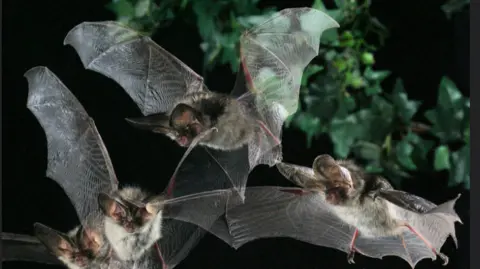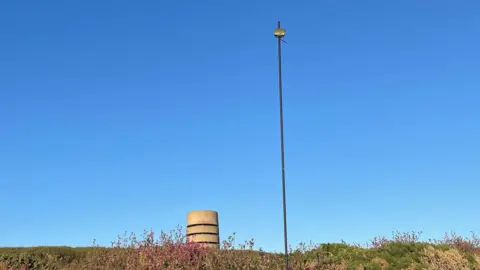Finished bat survey has 'revolutionised' knowledge
 Daniel Hargreaves
Daniel HargreavesA now completed government project to survey the local bat population has "revolutionised" the understanding of the mammals, organisers have said.
The Bailiwick Bat Survey was commissioned by the States' Countryside and Land Management Services (ACLMS) in 2021, to improve understanding of local bat distribution and activity.
The survey has confirmed the presence of at least 13 bat species, five small mammal species, and six species of bush-crickets, according to researchers.
Project co-ordinator Sarah Allez said the results have "far exceeded" her expectations in understanding local bat population and how they use the islands.
The project was a collaboration between ACLMS, the British Trust for Ornithology (BTO), La Société, Alderney Wildlife Trust and La Société Sercquaise.
It ran as a citizen science project offering anyone in the Bailiwick the opportunity to borrow automated equipment to record bats.
Organisers said hundreds of volunteers took part in the four year scheme, making it "the largest environmental citizen science project the Bailiwick has ever achieved".
Volunteers were asked to place a static bat detector in typical habitat for a four-night period twice a year.
The detector automatically recorded bat calls to a memory card every time one passed throughout a night.
Recordings uploaded to the survey website would then use automated sound analysis to identify specific species.
 The Bailiwick Bat Survey
The Bailiwick Bat Survey"The survey has produced a data set which has revolutionised our understanding of the local bat population and how they use the islands," Mrs Allez said.
"It was designed to connect and engage our community with an aspect of nature that was generally poorly understood, and the outcome was hugely successful."
She added: "Using citizen science in this way, we were able to help to raise awareness of what bats do for us and why it is important to conserve them, as well as providing the public with a sense of stewardship regarding this aspect of nature."
The 2024 report is due to be released next year, and another one is planned for 2026, the survey team said.
Follow BBC Guernsey on X and Facebook. Send your story ideas to [email protected].
